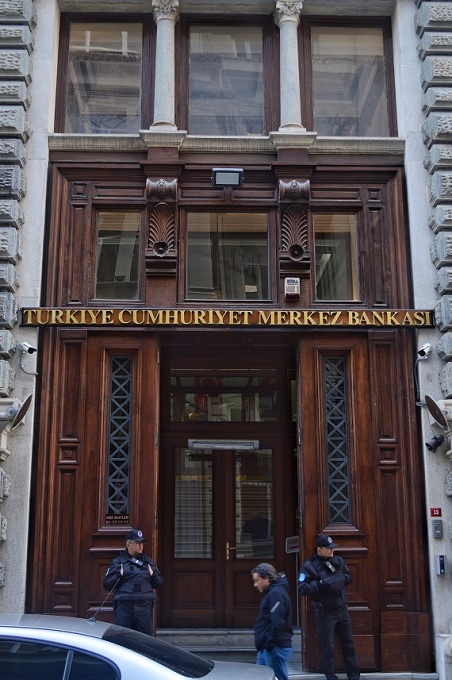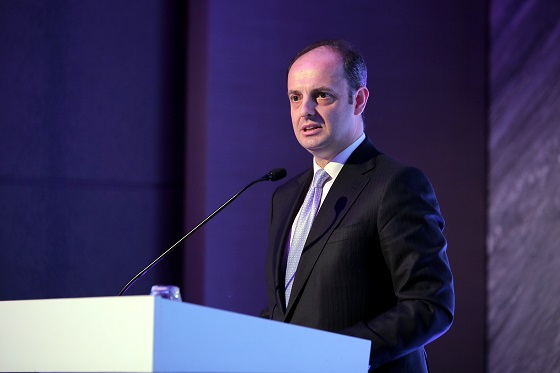economy news online news
By Dmitry Zaks
Turkey’s central bank on Thursday delivered a huge surprise by raising the interest rate to 25 percent as part of a transition from President Recep Tayyip Erdogan’s era of unorthodox economics. online news
The hike of 7.5 percentage points follows a raise to 17.5 percent from 15 percent last month.
Most economists had expected the bank to increase its policy rate Thursday to 20 percent.
“Recent indicators point to a continued increase in the underlying trend of inflation,” the central bank said.
“Monetary tightening will be further strengthened as much as needed in a timely and gradual manner until a significant improvement in the inflation outlook is achieved,” it said.
The lira gained 1.5 percent against the dollar in wake of the bank’s strong signal that is was stepping up its fight against inflation and attempts to support the troubled currency.
Capital Economics analyst Liam Peach said the “much larger-than-expected” rate increase “will go a long way towards reassuring investors that the shift back to policy orthodoxy is on track”.
Erdogan infused his government with market-friendly faces after winning a difficult May election that came in the heat of one of Turkey’s most dire economic crises in decades.
They immediately set off on a new battle against inflation that peaked at an annual rate of 85 percent last October and is on the rise once again.
The team allowed the lira to start depreciating against the dollar in a bid to ease pressure on depleted state coffers.
economy news online news
They also imposed a series of more technical steps aimed at balancing the economy and restoring the trust of both consumers and Turkey’s foreign investors.
‘Large gap’
The central bank increased its key rate to 15 percent from 8.5 percent at the first meeting chaired by former Wall Street executive Hafize Gaye Erkan in June.

Erdogan had pushed the nominally independent institution to slash borrowing costs out of a life-long belief that high interest rates cause — rather than cure — inflation.
But Erkan and Finance Minister Mehmet Simsek had advocated a more go-slow approach in the past two months that tried to restore market confidence without causing too much short-term pain.
That appeared to change when July’s annual inflation rate soared back to 47.8 percent thanks to billions of dollars in social spending Erdogan meted out during his election campaign.
The central bank expects the annual inflation rate to peak at 60 percent in between April and June of next year.
“There remains a large gap between the policy rate and both current and expected inflation,” ING bank’s chief economist Muhammet Mercan warned.
Some analysts suspected that Erkan and Simsek feared a revolt from Erdogan should they push their reforms too strongly.
Erdogan fired one central banker four months into his attempts to interest raise rates in late 2020 and early 2021.
He dismissed two others before then for fighting his unorthodox approach.
Vote of confidence
But Erkan’s hand was strengthened following the appointment of three more respected economists to top central bank positions in the past month.
These bankers are “giving Hafize Gaye Erkan the backing to be more aggressive with rate hikes,” emerging markets economist Timothy Ash said.
“The Turkish central bank now has a really impressive team in place — there is light at the end of the tunnel.”
Erdogan gave his new team a new vote of confidence in prepared remarks delivered shortly after the decision.
“We are taking determined steps to address the problems caused by inflation,” Erdogan said.
“We have started to see the positive impact of the measures already taken.”
fo-zak/giv
© Agence France-Presse. All rights are reserved.
economy news online news
Notes from APS Radio News
Reportedly because of what was being called a “pandemic”, a number of the world’s central banks embarked on massive programs of monetary expansion, starting in late February and early March of 2020.
For its part, between the early part of March of 2020 to over a year later, the US Federal Reserve added over $4 trillion to its holdings, by purchasing billions of dollars’ worth of Treasury bonds and corporate bonds each month during that period.
As well, at that time it kept interest rates rather low.
Other central banks, including the Bank of Japan and the European Central Bank, followed similar policies.
In addition, during that period many countries engaged in lockdowns; many small and medium-sized businesses and enterprises were shuttered by way of orders issued by public health officials, politicians and various administrators.
One of the direct causes of those shutdowns was the development of shortages.
According to a number of economists, the combination of shortages of various goods and services and massive programs of “quantitative easing” led to substantially higher rates of inflation.
In consequence of shuttered economies and higher rates of inflation in the first world, less developed countries suffered greatly, due, in part, to shortages of supplies and due to lowered demand.
Even as media are communicating that the actions of Turkey’s central bank are rather surprising, during the past year a number of central banks have been increasing interest rates.
Recently ANS reported that 30 year US Treasury bonds had risen to levels not seen in years.
A number of investors are convinced that excessive spending the past few years, massive infusions of money, shortages brought about by way of “covid”-related closures and the actions of BRICS countries, the latter in the context of increasing disenchantment with the dollar as the world’s reserve currency and with US policies, mean that inflation will be an ongoing problem.
For example, they’ve expressed concerns about a number of countries becoming less wiling to hold US dollars in their reserves.
As of a few years ago, China held nearly one trillion dollars of US government bonds.
economy news online news


